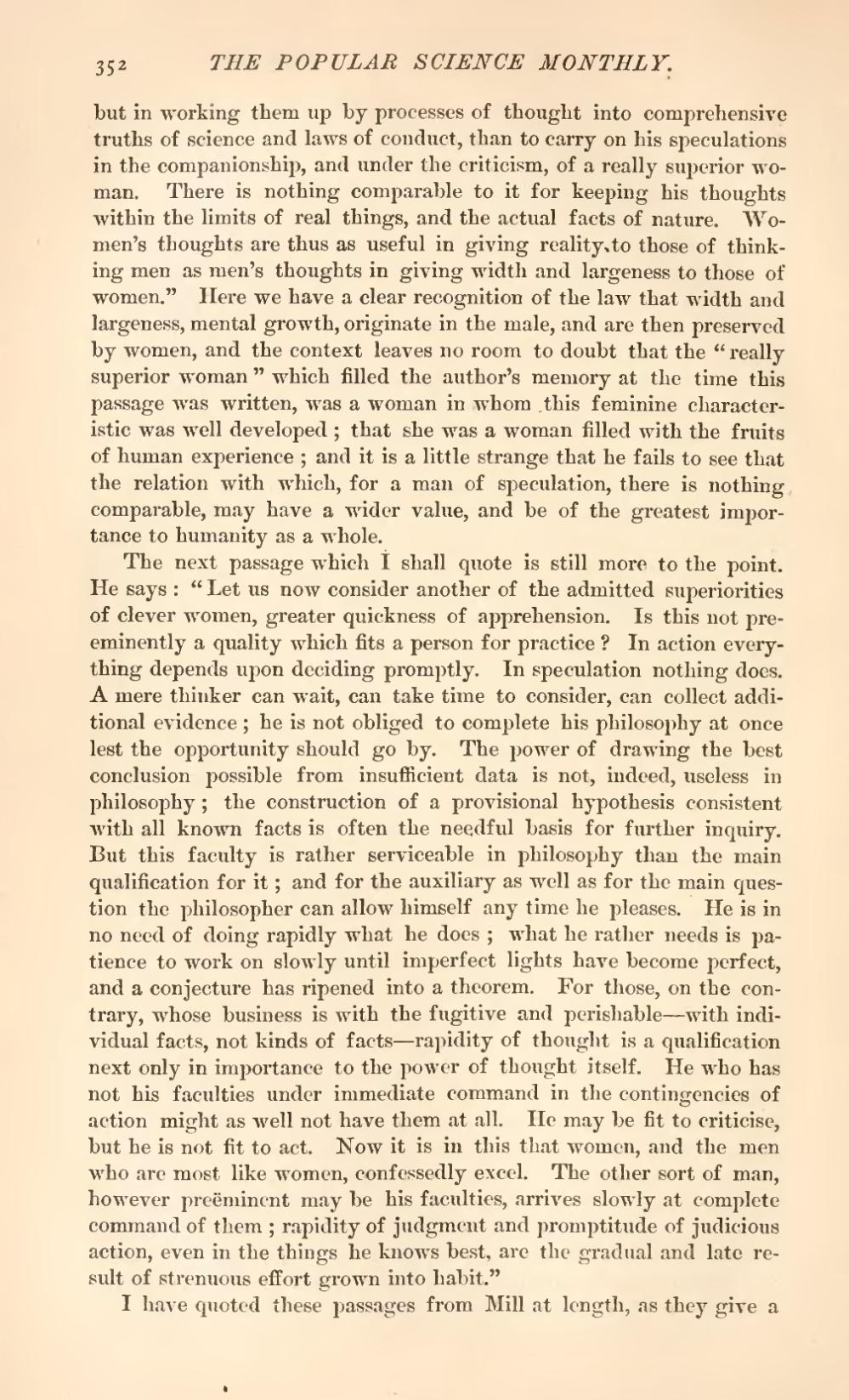but in working them up by processes of thought into comprehensive truths of science and laws of conduct, than to carry on his speculations in the companionship, and under the criticism, of a really superior woman. There is nothing comparable to it for keeping his thoughts within the limits of real things, and the actual facts of nature. Women's thoughts are thus as useful in giving reality, to those of thinking men as men's thoughts in giving width and largeness to those of women." Here we have a clear recognition of the law that width and largeness, mental growth, originate in the male, and are then preserved by women, and the context leaves no room to doubt that the "really superior woman" which filled the author's memory at the time this passage was written, was a woman in whom this feminine characteristic was well developed; that she was a woman filled with the fruits of human experience; and it is a little strange that he fails to see that the relation with which, for a man of speculation, there is nothing comparable, may have a wider value, and be of the greatest importance to humanity as a whole.
The next passage which I shall quote is still more to the point. He says: "Let us now consider another of the admitted superiorities of clever women, greater quickness of apprehension. Is this not preeminently a quality which fits a person for practice? In action everything depends upon deciding promptly. In speculation nothing does. A mere thinker can wait, can take time to consider, can collect additional evidence; he is not obliged to complete his philosophy at once lest the opportunity should go by. The power of drawing the best conclusion possible from insufficient data is not, indeed, useless in philosophy; the construction of a provisional hypothesis consistent with all known facts is often the needful basis for further inquiry. But this faculty is rather serviceable in philosophy than the main qualification for it; and for the auxiliary as well as for the main question the philosopher can allow himself any time he pleases. He is in no need of doing rapidly what he does; what he rather needs is patience to work on slowly until imperfect lights have become perfect, and a conjecture has ripened into a theorem. For those, on the contrary, whose business is with the fugitive and perishable—with individual facts, not kinds of facts—rapidity of thought is a qualification next only in importance to the power of thought itself. He who has not his faculties under immediate command in the contingencies of action might as well not have them at all. He may be fit to criticise, but he is not fit to act. Now it is in this that women, and the men who are most like women, confessedly excel. The other sort of man, however preeminent may be his faculties, arrives slowly at complete command of them; rapidity of judgment and promptitude of judicious action, even in the things he knows best, are the gradual and late result of strenuous effort grown into habit."
I have quoted these passages from Mill at length, as they give a
